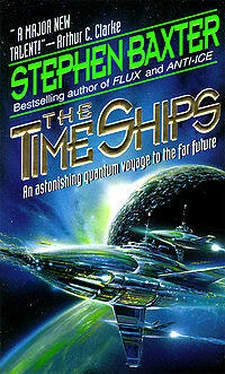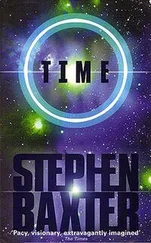I gathered Wallis didn’t make much of this sort of stuff. He shrugged his shoulders. “Eliot,” he said, as if that explained it all.
Now there came an image of a man: a rather careworn, jowly old fellow with an unruly moustache, tired eyes, ugly ears and a fierce, frustrated sort of manner. He sat with his pipe in his hand, by a fire-place — the pipe was rather obviously unlit — and he began to proclaim in a frail voice a kind of commentary on the day’s events. I thought the chap looked familiar, but at first I couldn’t place him. He wasn’t much impressed by the efforts of the Reich, it seemed — “That vast machine of theirs can’t create a glimmer of that poetry of action which distinguishes War from Mass Murder. It’s a machine — and therefore has no soul.”
He evoked us all to still sterner efforts. He worked the myths of the English countryside — “the round green hills dissolving into the hazy blue of the sky” — and asked us to imagine that English scene torn apart — “to reveal the old Flanders Front, trenches and bomb craters, ruined towns, a scarred countryside, a sky belching death, and the faces of murdered children” — all this last pronounced with something of an apocalyptic glee, I thought.
In a burst of realization, I remembered him. It was my old friend the Writer, withered into an old man! “Why, isn’t that Mr.—?” I said, naming him.
“Yes,” he said. “Did you know him? I suppose you could have… Of course you did! For he wrote up that popular account of your travels in time. It was serialized in The New Review, as I recall; and then put out as a book. That was quite a turning point for me, you know, to come across that… Poor chap’s getting on now, of course — I don’t think he was ever all that healthy — and his fiction isn’t what it was, in my view.”
“No?”
“Too much lecturing and not enough action — you know the type! Still, his works of popular science and history have been well received. He’s a good friend of Churchill — I mean the First Lord of the Admiralty — and I suspect your pal has had a great deal of influence on official thinking on the shape of things to come, after the War is done. You know — when we reach the ’Uplands of the Future.’ “ Wallis said, quoting some other speech of my former friend’s. “He’s working on a Declaration of Human Rights, or some such, to which we all must adhere after the War — you know the sort of dreamy affair. But he’s not so effective a speaker. Priestley’s my favorite of that type.”
We listened to the Writer’s perorations for several minutes. For my part, I was gladdened that my old friend had survived the vicissitudes of this grisly history, and had even found a meaningful role for himself — but I was helplessly saddened to see what time had done to the eager young man I had known! As when I had met Filby, I felt a stab of pity for the anonymous multitudes around me, embedded in slow-oozing time and doomed to inexorable decay. And it was a ghastly irony, I thought, that a man with such strong faith in the perfectibility of man should find the greater part of his lifetime dominated by the greatest War in history.
“Come on,” Wallis said briskly. “Let’s walk some more. The shows here repeat themselves pretty quickly anyway…”
Wallis told me more of his background. In the Weybridge Bunker, working for the Vickers-Armstrong Company, he had become a designer of aeronautical devices of some reputation — he was known as a “wizard boffin,” in his words.
As the War had dragged on, Wallis’s evidently fertile brain had turned to schemes of how its end might be accelerated. He had considered, for instance, how one might go about destroying the enemy’s sources of energy-reservoirs, dams, mines and such-like — by means of massive explosives to be dropped from the stratosphere by “Monster Bomber” flying machines. To this end he had gone into studies of the Variation of Wind Speed with Height, the Visibility of Objects from Great Heights, and the Effect of Earth Waves on Coal-mine Shafts, and so forth. “ You can see the possibilities of such things, can’t you? One just needs the right sort of imagination. With ten tons of explosives one could divert the course of the Rhine!”
“And what was the reaction to these proposals?”
He sighed. “Resources are always scarce during wars — even for priority schemes — and for unproven ventures like this… ’Moonshine,’ they called it. ’Tripe of the wildest description…’ and there was a lot of talk from the military types about ’inventors’ like me ’throwing away’ the lives of ’their boys.’ “ I could see he was hurt by this memory. “You know that men such as you and I must expect skepticism… but still!”
But Wallis had persevered with his studies, and at last he had been given the go-ahead to build his “Monster Bomber.” “It is called the Victory,” he said. “With a bomb-load of twenty thousand pounds, and operating at forty thousand feet, it can travel at over three hundred miles per hour and has a range of four thousand miles. It is a magnificent sight at take-off — with its six Hercules engines blazing away, it takes no less than two-thirds of a mile to lumber into the air… and the Earthquake Bombs it can deliver have already begun to wreak havoc, deep in the heart of the Reich!” His deep, handsome eyes gleamed behind his dusty glasses.
Wallis had thrown himself into the development of the Victory air machine for some years. But then his track had turned, for he came across that popular account of my time travels, and he had immediately seen the possibilities of adapting my machine for War.
This time his ideas had received a decent hearing — his stock was high, and it didn’t take much imagination to see the limitless military potential of a Time Machine — and the Directorate of Chronic-Displacement Warfare was set up with Wallis as the civilian head of research. The first action of the DChronW was to sequester my old house, which had stood abandoned in Richmond since my departure into time, and the relics of my research were dug out.
“But what do you want of me? You have a Time Machine already — the Juggernaut that brought me here.”
He clasped his hands behind his back, his face long and serious. “The Raglan. Of course — but you’ve seen that beast for yourself. As far as its time-traveling abilities go, it was constructed solely with the scrap that was found in the ruins of your laboratory. Bits of quartz and brass, doped with Plattnerite — impossible to balance or calibrate — the Raglan is a lumbering beast which can reach barely a half-century away from the present. We dared risk the ’Naut for no more than to try to ensure that there was no anachronistic interference by our enemies with the development of your original machine. But now — by chance! — it has brought us you.
“Already we can do more, of course: we have stripped the Plattnerite from your old machine, and have lodged the hull in the Imperial War Museum. Would you like to see it? It will be an honored exhibit.”
I was pained at the thought of such an end for my faithful chariot — and disturbed at the destruction of my only route away from 1938! I shook my head stiffly.
Wallis went on, “We need you to generate more of the substance you called Plattnerite — tons of it — show us how!” So Wallis thought I had manufactured the Plattnerite?… I kept the thought to myself. He went on, “We want to take your Time Machine technology, and extend it — put it to uses beyond, perhaps, your most extraordinary dreams…
“With a CDV one might bomb History and change its course — it is just like my scheme to divert the Rhine! Why not? — if it can be conceived, it should be done. It’s the most exciting technical challenge you can imagine — and it’s all for the benefit of the War Effort.”
Читать дальше
Конец ознакомительного отрывка
Купить книгу









